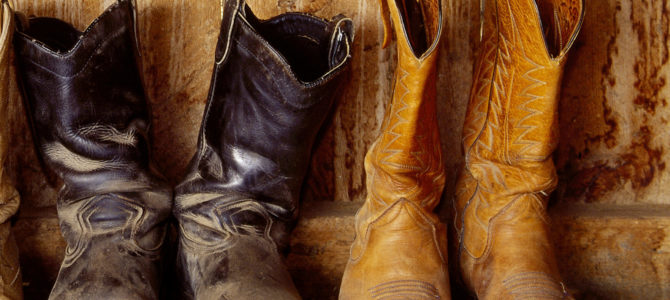
Clint Eastwood movies are many things – rousing, thought-provoking, and routinely iconic. Even the worst of the worst — think “Pink Cadillac” — go all-in for our enjoyment.
Until now. “Cry Macho,” starring and directed by the 91-year-old legend, flirts with a half-dozen noble conceits, maybe more. And it comes up short over and again.
Eastwood plays Mike Milo, a retired rodeo performer from Texas cast aside by his long-time manager, Howard Polk (country crooner Dwight Yoakam). The two still have a bond a full year after Mike’s curt dismissal, which explains why Howard calls in a monumental favor.
Yoakam’s character, who deserves more screen time, asks Mike to retrieve his 13-year-old son, Rafo (Eduardo Minett), from his mother’s dangerous clutches in Mexico City.
Why Mike? It’s a good question, one not fully answered by a screenplay teeming with plot holes. Perhaps it’s the fact that Mike is “a real cowboy,” in Howard’s estimation. A more accurate response would be, “It’s Clint … of course he can get ‘er done.”
No matter. Mike does as told because it’s the right thing to do.
“You gave me your word. That used to mean something, Mike,” Howard admonishes him.
So Mike heads south, tangles with Rafo’s powerful Ma (Fernanda Urrejola) and snags his target in near-record time. Only, getting back home won’t be easy. Sinister forces line up to stop Mike from completing his mission. Other characters interrupt in more charitable ways, letting this cowpoke show them, and us, why old-school machismo never goes out of style.
Movie Fails to Fully Explore Machismo
Except “Cry Macho” never fully explores that rich conversation. Nor does it attempt the opposite, like a scene highlighted in the film’s trailer where Mike questions the nature of the word “macho.”
It’s not like this is unfamiliar terrain for Eastwood, one of Hollywood’s remaining macho stars. Eastwood’s 1992 western “Unforgiven” deconstructed the notion of a heroic gunslinger with Oscar-winning results. There’s nothing remotely similar here.
So what’s left? Try a gentle, coming of age story that’s hard to get mad about and even tougher to praise unconditionally. Eastwood the actor still has that impossible-to-bottle screen presence, even if he’s slower on the draw than ever before.
A Culmination of Charming Characters
Mike’s character lacks the fascinating flaws of his last big-screen role, that of the accidental drug trafficker in 2018’s “The Mule.” That film found Eastwood fumbling to connect with his estranged family, using archaic language, and falling into illegal activities.
Mike is kind and knowing, a culmination of Eastwood’s charming characters from across his career. He’s got a way with animals, no doubt, and he’s not too old to woo women decades younger than his character. Yes, we’re treated to a cringe-worthy romance between Mike and Marta (Natalia Traven), who also lost her partner many years ago.
Yet there’s always that scowl, the look Eastwood flashes when his character has been wronged. Time can’t take that away, nor the sense that even an elderly Clint can still defend himself with his fists.
He’s a cowboy through and through, right from the very first glimpse of him in the film’s opening moments. Eastwood gives himself a star’s entrance – a boot here, a silhouette there, before we see the man in full. Has any actor earned that right more?
At times “Cry Macho” feels like Eastwood saying, “farewell” to his fan base. How many leading man roles will he have in his nineties?
Film Lacks Friction, Nuance, and Good Dialogue
The screenplay has been sitting on the proverbial shelf for decades, spit-polished by Eastwood collaborator Nick Schenk (“The Mule”) from N. Richard Nash’s novel of the same name, spun from his original script in the 1970s. The collaboration yields too much “on the nose” banter, the kind leagues beneath the film’s star.
“You’re kinda growing on me, kid,” Mike growls to Rafo at one point, when it’s clear by his actions that’s exactly how he feels. Later, Mike muses that this “macho thing is overrated,” a scene that feels dropped in from a different movie, or just missing similar material to make the conversation stick.
“Cry Macho” badly needs more friction, be it between Mike and Rafo or the various characters in their inner circle. It’s one thing for Eastwood and co. not to overplay culturally insensitive moments like a woke director might. Instead, the film suggests an elderly cowpoke could seamlessly enter the lives of a Mexican family with nary a hiccup.
The villains met along the journey lack both nuance and a sense of real danger. When they rise up to counter Mike, they’re more nuisance than threat.
That leaves Eastwood, young Minett, and plenty of heartfelt exchanges. Even here the thin story confounds. Rafo is described as the wildest of wild childs, a lad with chaos in his DNA. It’s hardly what we see on screen. Minett invests all he can with the character, but he never feels fully realized.
And then there’s Macho, the name of Rafo’s beloved rooster. He’s the best mannered fowl in all of Hollywood, although his third-act heroism is more snicker-worthy than thrilling.
“Cry Macho” lets us savor yet another Eastwood performance, and the joy in that fact cannot be overstated. Coming on the heels of the excellent “Mule” and sublime “Richard Jewell,” though, “Cry Macho” is a letdown.









